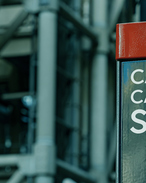AGL sought to have its logos removed from the campaign that referred to it as Australia's biggest climate polluter.
The Copyright Act 1968 (Cth) allows people to use copyright material without the copyright owner's permission in certain situations, including fair dealing for specific purposes such as parody and satire. ‘Fair dealing' provisions regarding company logos have been largely untested in Australian case law.
Handing down his verdict late on Tuesday, Honourable Justice Burley found the activist group had not infringed AGL's trademark, however imposed an injunction relating to certain instances on unauthorised uses by Greenpeace of AGL's logo in protest.
The Court found "copyright protects the owner's interest in the artistic work, it does not provide a mechanism for protecting a copyright owner's reputation".
It noted that AGL's submission made the case that Greenpeace used AGL's logo to make its brand toxic and to remove its social license, however the Court found Greenpeace had not used the logo in an unfair manner, particularly given there was clear attribution that the campaign was being run by Greenpeace.
"No sensible reader can conclude other than that the impugned uses are statements emanating from Greenpeace about AGL," Justice Burley said.
The judge also rejected AGL's claim that Greenpeace had been using its logo for ‘educational purposes', saying he was "not satisfied that Greenpeace is using the trademark in relation to such services".
Greenpeace APAC general counsel Katrina Bullock said the case was a win for freedom of expression, setting an important legal precedent in copyright law.
"Today's legal victory is good news for charities, advocacy organisations, satirists and anyone else who seeks to rely on the "fair dealing" freedom of speech safeguard in the Copyright Act to criticise, review, satirise or parody powerful corporations," she said.
The environmental group said it plans to continue its campaign to pressure AGL to close its coal-fired power stations by 2030, including the logo parody that sparked AGL's lawsuit against the environmental charity.
Commenting on the outcome of the case, AGL said it welcomed the injunction that was granted relating to certain instances of unauthorised use by Greenpeace of AGL's logo.
Bullock said in previous statements she believed the case was part of a broader movement by industry to use lawsuits to silence critics, a claim which AGL flatly rejected.
"As we've always made clear, this legal action was about the integrity of how our brand is used," an AGL spokeswoman told Energy News.
"We look forward to our continued engagement with Greenpeace on these important issues and welcome the opportunity to be part of the public debate in relation to climate and how we can work together to deliver Australia's energy transition."
























